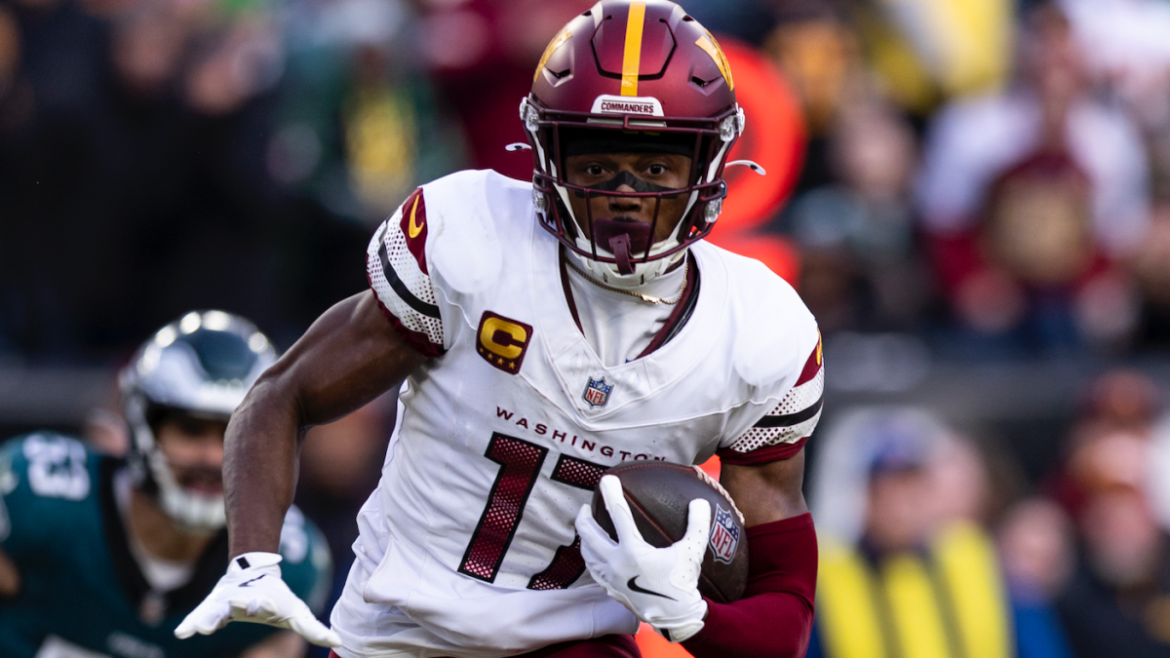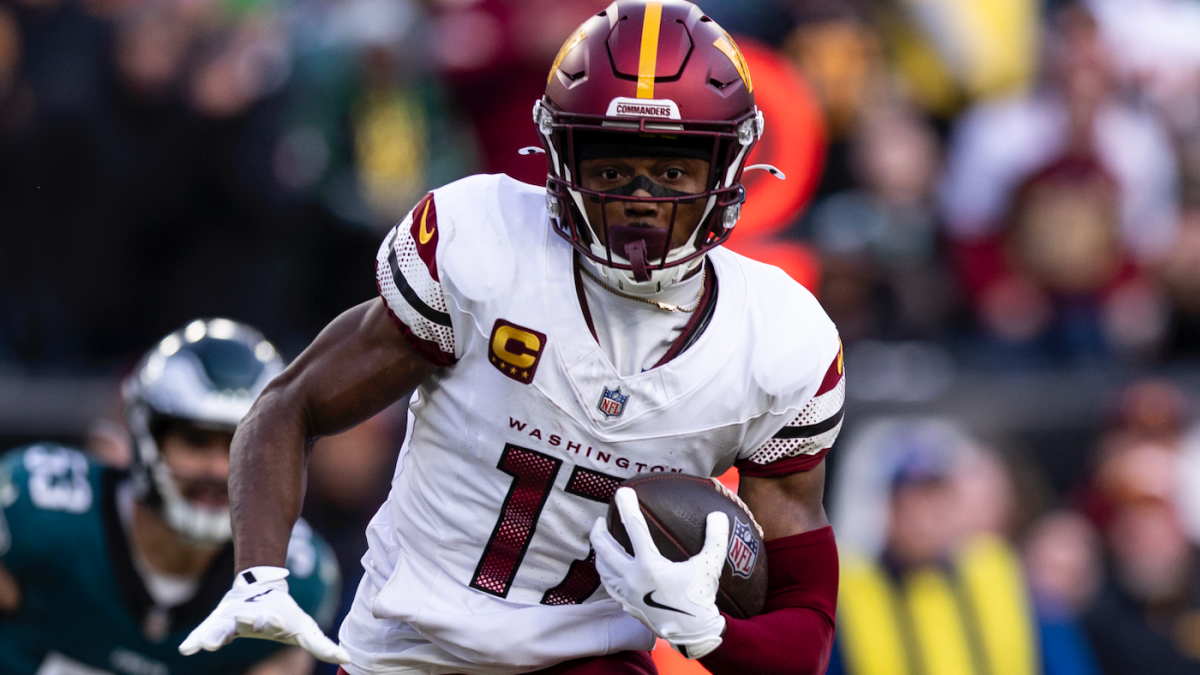The McLaurin Contract Saga: A Deep Dive into the Washington Commanders’ Wide Receiver Dilemma
The situation surrounding Washington Commanders wide receiver Terry McLaurin and his contract extension has become a focal point of NFL offseason discussion. Multiple reports indicate a potentially contentious negotiation, with McLaurin seeking compensation commensurate with his proven performance and the escalating market for top-tier receivers. This analysis will dissect the available information, examining the key factors influencing the contract talks, potential outcomes, and the broader implications for the Commanders’ franchise.
The Core of the Dispute: Value and Market Comparison
At the heart of the matter lies the valuation of Terry McLaurin. He’s consistently demonstrated himself as a reliable and productive target, culminating in a standout 2024 season with 82 receptions, 1,096 receiving yards, and 13 touchdowns. This performance, coupled with his status as a two-time Pro Bowler, positions him firmly among the NFL’s elite receivers.
However, translating on-field success into a contract figure is complex. The receiver market has seen significant inflation, with players like Tyreek Hill, Stefon Diggs, and Davante Adams securing deals exceeding $30 million annually. McLaurin’s camp is understandably aiming for a similar range, with estimates consistently falling between $30-$34 million per year. Several reports suggest a $30 million payout is a potential sticking point for the Commanders.
The Commanders, while acknowledging McLaurin’s value, appear hesitant to immediately commit to that figure. This reluctance likely stems from a combination of factors, including McLaurin’s age (turning 30 in September) and a desire to avoid setting a precedent that could further inflate the contracts of other key players. Comparisons to receivers like DK Metcalf, drafted before McLaurin, suggest a potential attempt to leverage age and draft position in negotiations, aiming for a deal starting around $23.3 million per year.
The Commanders’ Position: Cap Space and Long-Term Planning
The Commanders’ willingness to engage in negotiations is evident, as they are actively discussing a long-term extension. They also possess the cap space to accommodate a significant contract, mitigating financial constraints as a primary obstacle. However, the team’s approach appears calculated, prioritizing long-term financial flexibility.
The team currently has a cap hit of $25.5 million for McLaurin in the final year of his current contract, with a base salary of $15.5 million. Extending his contract would allow them to restructure the cap hit, potentially spreading the cost over multiple years. However, exceeding the $30 million per year threshold could limit their ability to address other team needs, particularly at positions like left tackle, identified as a major weakness.
Furthermore, the Commanders’ recent draft position (Round 1, No. 27 in the 2025 NFL Draft) suggests they may be exploring options to bolster their roster through the draft, requiring careful allocation of resources. The team’s general manager, Adam Peters, faces the challenge of balancing the need to retain a star player with the imperative to build a competitive team across all positions.
The Impact of the Holdout and External Pressure
Terry McLaurin’s decision to hold out of the team’s offseason workouts adds another layer of complexity to the situation. While not uncommon for players seeking extensions, the holdout signals a clear message of dissatisfaction and underscores the seriousness of the contract dispute. It also creates external pressure on the Commanders to reach a resolution before training camp, minimizing disruption to team preparations.
NFL insiders are closely monitoring the situation, with reports suggesting the Commanders have “five or six weeks” to resolve the issue before camp begins. The receiver market’s continued escalation further amplifies the pressure, as each new contract signed by a comparable player raises the bar for McLaurin’s potential demands. The situation is compounded by other notable holdouts, including T.J. Watt and Trey Hendrickson, creating a league-wide trend of players leveraging their value in contract negotiations.
Potential Outcomes and Future Implications
Several potential outcomes could emerge from the McLaurin contract talks:
- Agreement on a Long-Term Extension: This is the most likely scenario, with a deal likely falling in the $30-$32 million per year range. The Commanders may structure the contract with incentives and guarantees to mitigate risk and maintain financial flexibility.
- Short-Term Extension/Franchise Tag: If a long-term agreement proves elusive, the Commanders could opt for a short-term extension or utilize the franchise tag to retain McLaurin for another season, allowing for continued negotiations.
- Trade: While less probable, a trade cannot be entirely ruled out. If the Commanders deem the financial gap insurmountable, they could explore trading McLaurin to a team willing to meet his contract demands.
- Continued Holdout/Standoff: A prolonged standoff could damage the relationship between McLaurin and the Commanders, potentially leading to a decline in performance or a future departure.
Regardless of the outcome, the McLaurin contract saga highlights the challenges of managing player contracts in the modern NFL. The escalating receiver market, coupled with the increasing leverage held by players, demands a strategic and nuanced approach from teams. The Commanders’ handling of this situation will not only determine McLaurin’s future but also set a precedent for future contract negotiations with other key players.
A Defining Moment for the Commanders
The resolution of Terry McLaurin’s contract dispute represents a defining moment for the Washington Commanders. It’s a test of their commitment to retaining core players, their ability to navigate the complexities of the modern NFL salary cap, and their overall vision for building a competitive franchise. Successfully securing McLaurin’s long-term future would signal a new era of stability and ambition, solidifying his position as a cornerstone of the team and inspiring confidence among fans. Failure to reach an agreement, however, could have far-reaching consequences, potentially jeopardizing the team’s progress and casting a shadow over their future prospects.





